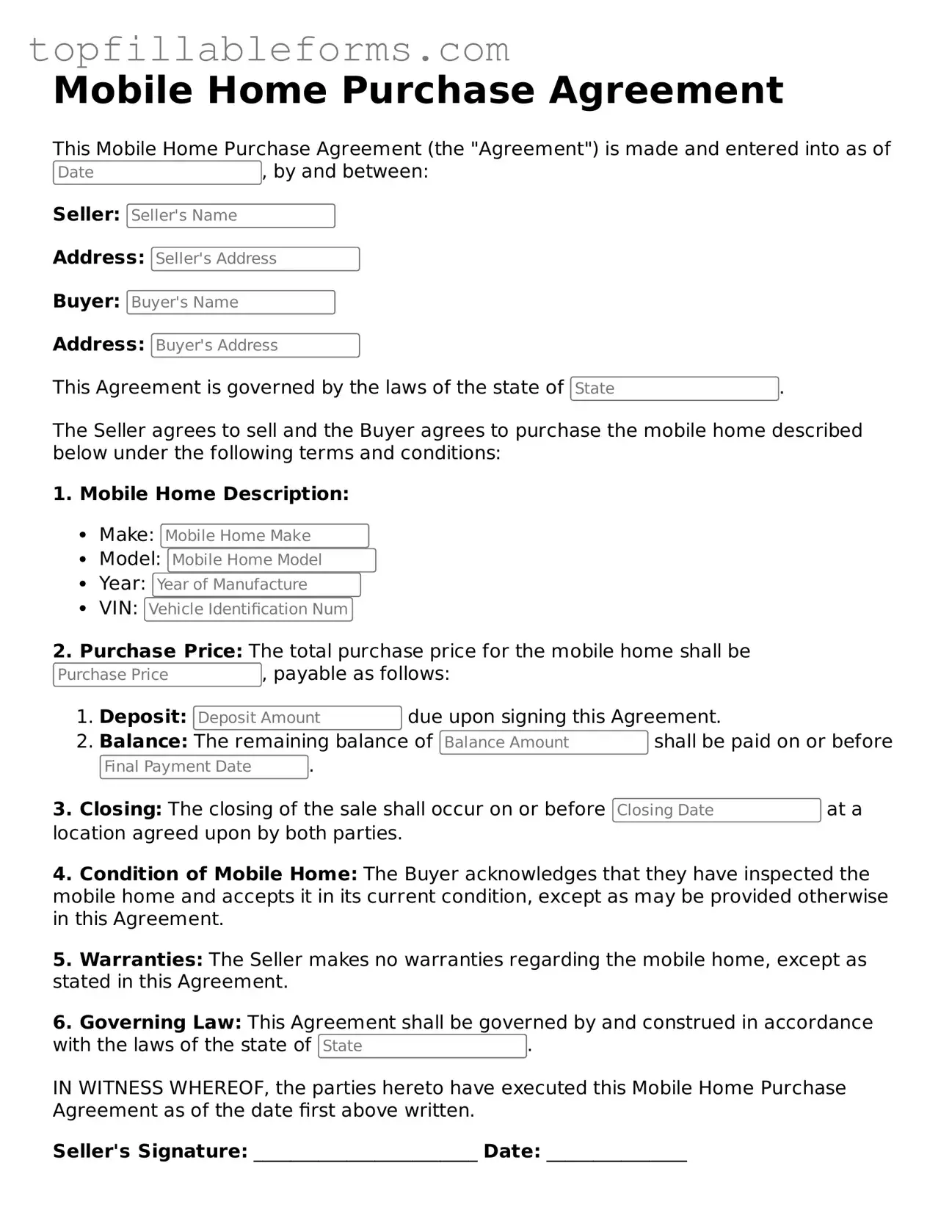Free Mobile Home Purchase Agreement Form
A Mobile Home Purchase Agreement is a legal document that outlines the terms and conditions of buying a mobile home. This form serves as a binding contract between the buyer and seller, detailing essential information such as the purchase price, payment terms, and any contingencies. Understanding this agreement is crucial for ensuring a smooth transaction and protecting the interests of both parties involved.
Open Mobile Home Purchase Agreement Editor Here

Free Mobile Home Purchase Agreement Form
Open Mobile Home Purchase Agreement Editor Here
Finish the form now and be done
Finish your Mobile Home Purchase Agreement online by editing, saving, and downloading fast.
Open Mobile Home Purchase Agreement Editor Here
or
▼ PDF File
